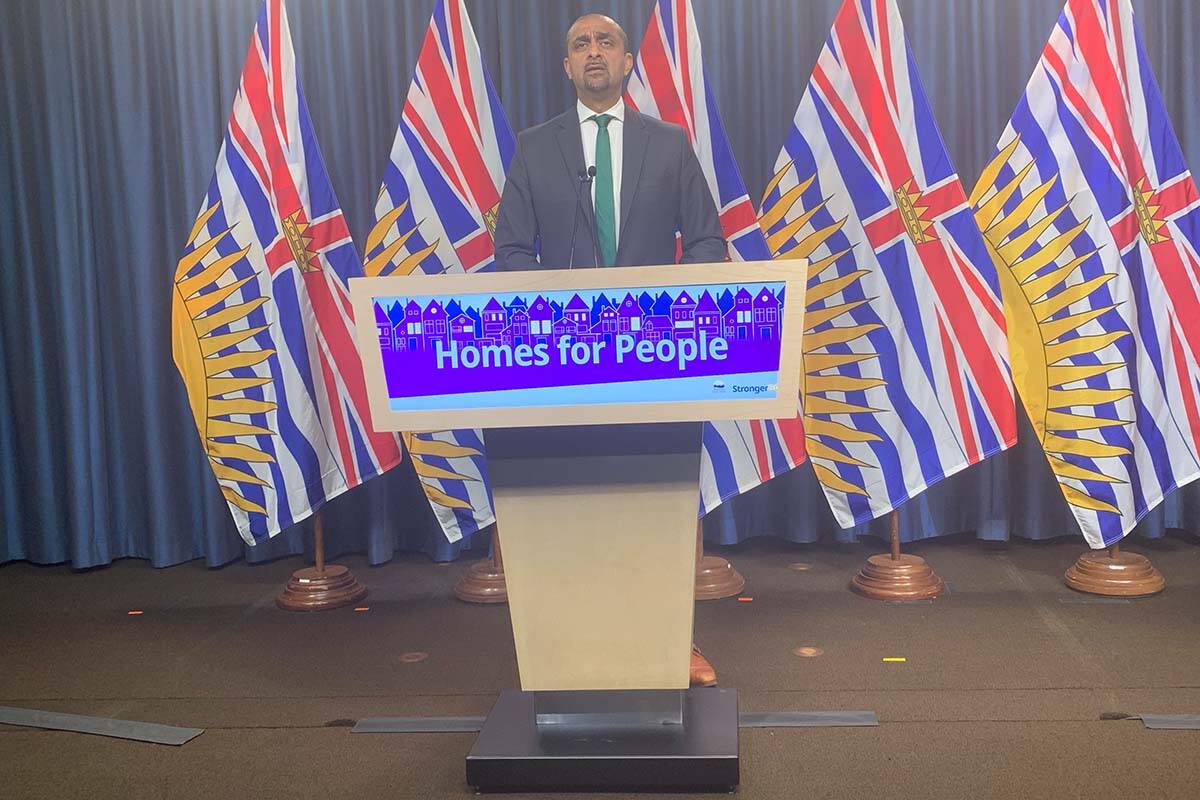The provincial government is topping up housing supports for low-income seniors and families and expanding eligibility rules for recipients.
Housing Minister Ravi Kahlon announced Tuesday (April 9) that current recipients of the Shelter Aid for Elderly Renters program and the Rental Assistance Program will receive an immediate one-time top up of $430 this month. Current recipients will not have to apply for it, Kahlon said.
SAFER provides seniors with low incomes financial support to help pay monthly rent, while RAP provides support for eligible low-income families.
The province is also increasing SAFER payments by an average of $110 per month, bringing the average monthly subsidy for existing clients to $310.
The province will also expand income eligibility for SAFER from $33,000 to $37,240.
Kahlon said he expects that the changes in eligibility will increase the number of SAFER recipients to 25,000 from 20,000. He added that the province will launch a public awareness campaign.
“We know that seniors are facing real challenges,” Kahlon said. “We have been working closely with the seniors advocate and many other seniors organizations around the province to ensure that not only are we expanding housing opportunities, building affordable housing options for seniors, but also today helping seniors directly with costs to cover their rents or groceries or other cost pressures that they may be facing.”
Funding for the one-time top-up comes from the Canada Housing Benefit, while the province is providing $15.6 million to support the longer-term improvements to SAFER.
Government said later that the higher eligibility threshold won’t be impacted by federal rules.
RELATED: BC Greens want rent hike limits tied to units, instead of renters
The changes come amidst growing concerns about homelessness among seniors, caused in part by rising inflation and other cost pressures, as well as questions from the opposition about the level of support for SAFER.
B.C. Green Leader Sonia Furstenau said her party is glad that government is paying attention to the SAFER program. “Low income seniors are struggling to get by, they are struggling to pay their housing costs, they are struggling to pay for their medication, for their food.”
On the other hand, Furstenau said government did not raise the SAFER threshold enough. “The threshold we called for was actually $45,000 for individuals and $50,000 for a couple,” she said. “So the addition to the threshold announced today by government, we don’t think it goes far enough.”
She also raised concerns about government’s decision not to increase monthly RAP payments. While she acknowledged the one-time top-off in RAP payments, such one-time top-offs cost a lot of money and fail to deliver systemic change.
Kahlon said RAP recipients are receiving support through the rental tax credit. “They are getting additional supports, but there are no further changes to the RAP program at this point,” he said. He said that government prioritized SAFER over concerns that seniors are increasingly showing up at homeless shelters, adding that government could change RAP eligibility levels in the future.
Furstenau had raised concerns in late February about money earmarked for low-income British Columbians, including seniors, going unspent.
“In 2022-23, B.C.’s housing rental assistance programs reached 10,000 fewer people than planned,” Furstenau said. “As a result, $32 million that was supposed to support low-income British Columbians did not get spent. For those who do receive rental assistance, the subsidies are no longer enough to make ends meet.”
RELATED: B.C. tables legislation to combat ‘bad faith’ evictions

